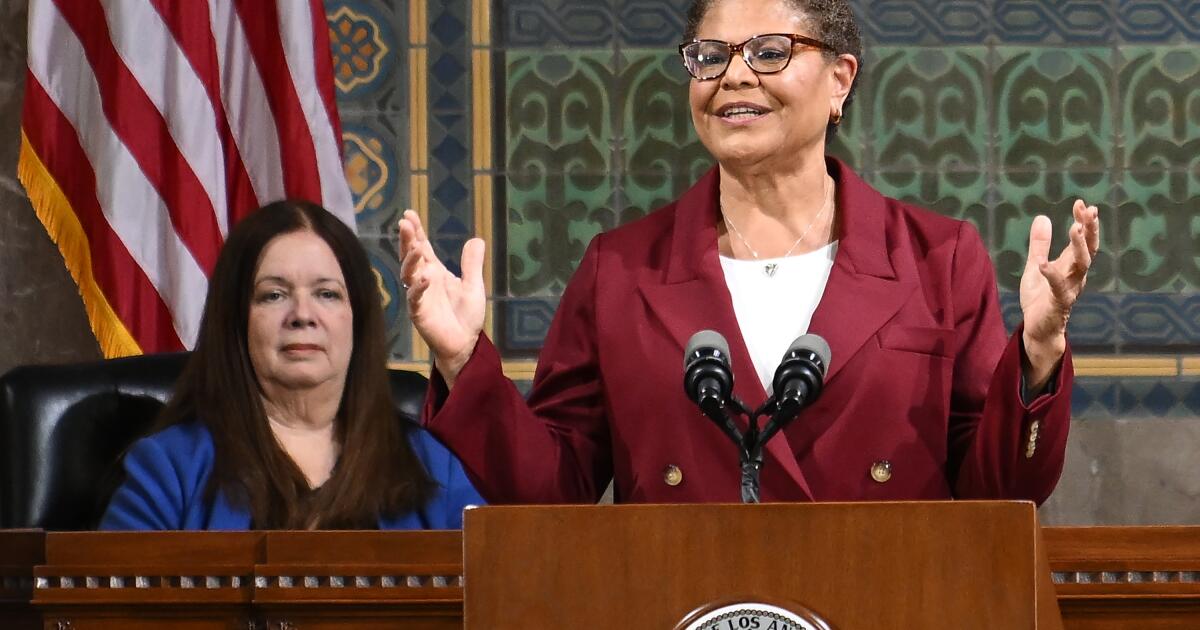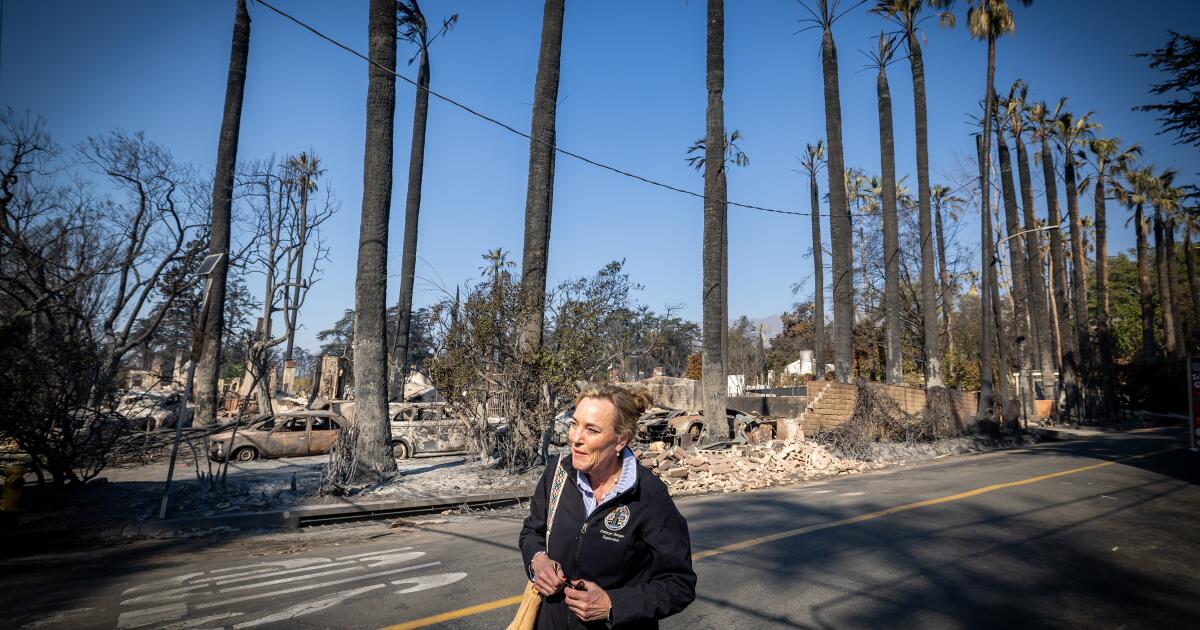Mayor Karen Bass says she reached a deal to restore police hiring
Los Angeles Mayor Karen Bass has reached an agreement with City Council President Marqueece Harris-Dawson to find the money to reverse the cuts to police hiring made last month by the council.
On Friday, Bass signed the 2025-26 budget approved by the council, which reworked much of her plan for closing a $1-billion shortfall. Among the council’s changes to the mayor’s spending plan was a reduction in the number of police officers hired in the coming fiscal year, which would drop from 480 to 240.
The following day, as part of her signing announcement, the mayor highlighted the separate deal with Harris-Dawson to ensure that “council leadership will identify funds for an additional 240 recruits within 90 days.” The budget year begins July 1.
The money for the additional officers would be allocated within the 90-day deadline, said Bass spokesperson Zach Seidl.
“No one got everything they wanted,” Harris-Dawson said in a statement. “There is still more work ahead, especially our commitment to work with the Mayor to identify the funds for an additional 240 recruits within 90 days.”
Restoring the 240 police recruits would require the council to free up an additional $13.3 million for the coming year. In 2026-27, the cost of those officers — who would be working their first full year — would grow to about $60 million, according to a city estimate.
Bass proposed a budget in April that called for laying off about 1,600 civilian city workers, one-fourth of them at the LAPD. The council voted last month to reduce the layoff number to around 700, in part by scaling back the mayor’s hiring plans at the LAPD and the Los Angeles Fire Department.
During their deliberations, council members said a slowdown in the hiring of police officers would protect the jobs of other workers at the LAPD, including civilian specialists who handle DNA rape kits, fingerprint analysis and other investigative tasks.
Bass, in her statement, thanked the council for “coming together on this deal as we work together to make Los Angeles safer for all.” She said the budget invests in emergency response, homeless services, street repairs, parks, libraries and other programs.
“This budget has been delivered under extremely difficult conditions — uncertainty from Washington, the explosion of liability payments, unexpected rising costs and lower than expected revenues,” she said.
During the budget deliberations, Bass voiced dismay about slowing down recruitment at the LAPD. In recent days, she had weighed whether to veto all or a portion of the budget, which could have led to a messy showdown with the council.
The council voted 12 to 3 to approve the reworked budget proposal last month. Because only 10 votes are needed to override a veto, Bass would have had to secure at least three additional votes in support of her position on police hiring.
Whether Harris-Dawson has the support of his colleagues to find the money — and then spend it on police hiring — is unclear. Unless the city’s labor unions make financial concessions, the council would likely need to either tap the city’s reserve fund or pull money from other spending obligations, such as legal payouts or existing city programs.
The budget provides funding for six classes with up to 40 recruits each at the Police Academy over the coming fiscal year. Bass had originally sought double that number, providing the department with 480 recruits.
Councilmember Katy Yaroslavsky, who chairs the council’s budget committee, said she shares the mayor’s goal of restoring LAPD recruit classes — and looks forward to “working with her to make it happen.”
“The question has always been how to do it in a way that is fiscally responsible and sustainable,” Yaroslavsky said.
To increase police hiring and eliminate the remaining 700 layoffs, the council will need to turn to the city’s labor unions for additional savings, Yaroslavsky said.
The council’s budget provided enough funding to ensure the LAPD has 8,399 officers by June 30, 2026, the end of the next fiscal year. The $13.3 million sought by Bass would bring the number of officers to more than 8,600.
The LAPD had 8,746 officers in mid-May, down from about 10,000 in 2020, according to department figures.

